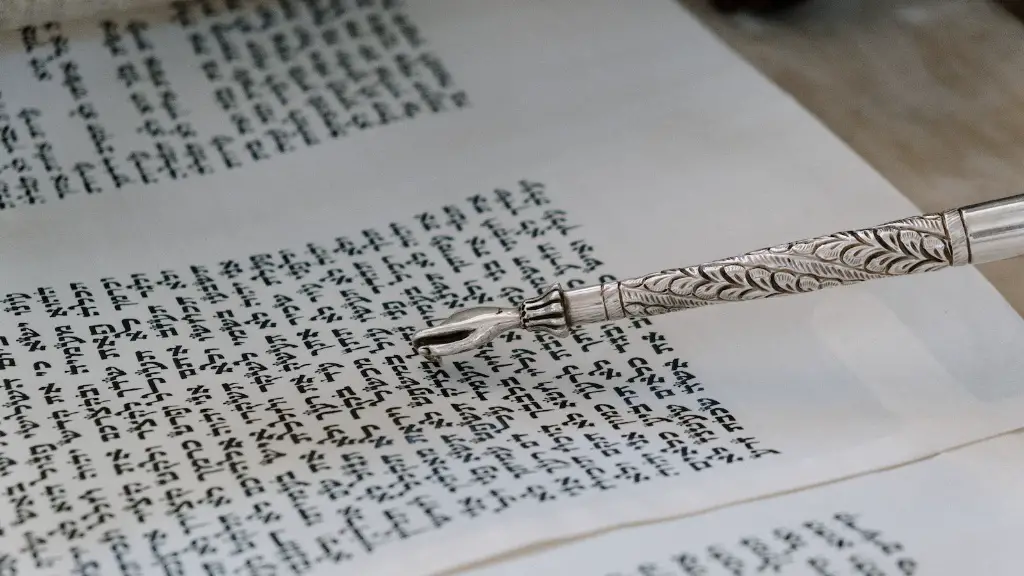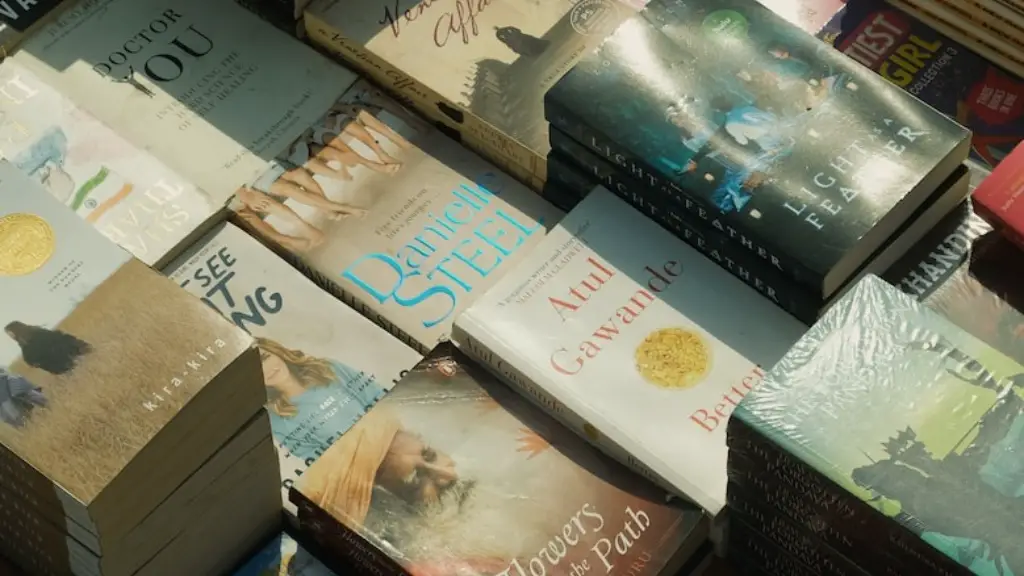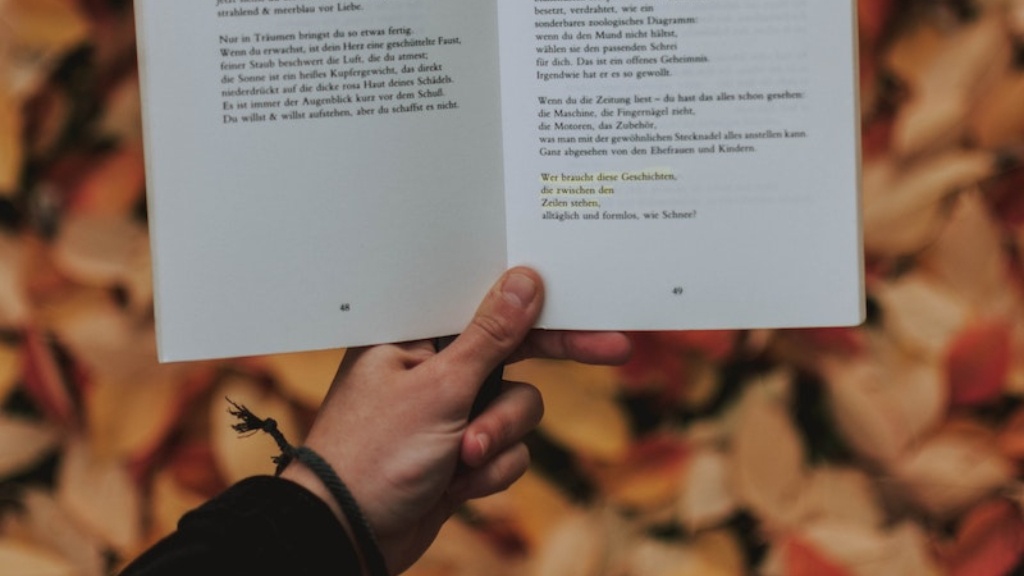What is an Epic in Poetry
The epic is a form of epic narrative poetry that has been used by many cultures throughout history. It is traditionally defined as a long narrative poem that tells the story of a hero’s impressive achievements, often involving gods, deities, and other mythological characters. The epic has its roots in oral literature, as it was first passed from generation to generation in spoken word.
In terms of its usage and definition, an epic poem is typically highly symbolic and its story is suggestive of topics beyond the plot itself. It has a central theme or storyline which these additional elements are thought to embody. Themes may be at a political, social or spiritual level and could include concepts such as morality, honour and patriotism.
The motivations for writing epic poetry vary. Traditionally, it was seen as a way to record and honor the cultural heritage of a society, while also recounting tales of heroism and achievement that had moral lessons attached to them.
As a form of literature, epic poetry has been studied for centuries by many academics and is still used today in creative writing and literature classes. It has also been used in many film and television adaptations, as it is recognizable for its storytelling structure and poetic style.
Academics point to the ancient Sumerian and Babylonian text Gilgamesh as a prime example of early epic poetry, which dates back to around 2100BCE. Other well-known examples include the Iliad and the Odyssey by Homer, Virgil’s Aeneid, and the Old English Beowulf.
The epic’s structure is typically cyclical, with the story beginning and concluding at the same point; although, this is not always the case.
With its grandiose themes, the epic is a universal form of storytelling and has had an immense impact on literature and culture. The epics of the ancient world continue to fascinate and inspire, and remain significant works of art.
Epic Poetry in Modern Literature
Throughout the years, epic poetry has evolved; although it recognizes some of the ancient conventions, modern epic poetry has taken different forms. Some writers have employed sci-fi elements, for example, or have stretched the limits of epic poetry further by including elements of prose, drama, and song.
In terms of its modern usage, epic poetry has been especially prominent in literature during the last century. For example, T.S. Eliot wrote a successful verse play called ‘The Cocktail Party,’ which employed Homeric techniques. Other key works of the 20th century were Ezra Pound’s translation of The Odyssey, and Robert Frost’s ‘A Masque of Reason,’ which also employed epic devices.
During the same period, Nobel Prize laureate Seamus Heaney wrote several epics of his own. Epic poems such as ‘Beowulf’ by Heaney, and ‘The Faerie Queen’ by Edmund Spenser, offer readers the opportunity to experience larger-than-life heroes embarking on remarkable journeys.
In modern times, some have declared the death of epic poetry, with much of today’s literature preferring shorter poetic forms. Yet, epics have been, and continue to be, an important part of the story-telling tradition and have had a major influence on shaping popular culture.
Epic Poetry in Popular Culture
Epic poetry has had a long-lasting influence on the world of popular culture, having been borrowed and adapted to various media forms. Both Heaney’s ‘Beowulf’ and Shakespeare’s ‘Macbeth’ have been recreated on the big screen, while Homer’s ‘The Odyssey’ has been adapted into countless television shows and films, while his famous quote ‘you can’t go home again’ has been referenced in countless works of literature and culture.
One of the most popular modern epic poems is J.R.R Tolkien’s ‘The Lord of the Rings’ trilogy, which has become one of the most successful film franchises in history. The trilogy has achieved both commercial and critical success in its multiple adaptations, for the big screen, small screen, theatre and audio-dramas.
Epic poetry has inspired generations of authors, filmmakers, and other creative people, and its legacy continues to bear fruit. Epic stories from the past have been re-crafted and used to create new works, making it one of the most enduring forms of story-telling.
Types of Epic Poetry
Epic poetry can be broadly categorized into a few main types, though some cross over into other forms of narrative poetry. Within the genre, epic poetry can include stories such as epics, epics of self-expression, epics of self-indulgence, and epics of heroic quest.
Epics are traditional stories recounting the deeds of heroes. These stories include well-known characters such as Odysseus, Beowulf and Gilgamesh, who embark on journeys to explore, conquer and face many challenges.
Epics of self-expression are used to express the poet’s own thoughts and feelings, often in memoir-style. These works are often autobiographical or reflective in nature, as they examine the poet’s relationships, milestones, and moments of introspection.
Epics of self-indulgence, on the other hand, concern the poet’s own fantasies and vices. These works are often very experimental and focus on the individual’s desire for escape and indulgence.
The epic of heroic quest centers around the hero’s journey, and often touches on themes of loyalty, courage and overcoming obstacles. The hero typically embarks on a meaningful mission and is rewarded for their efforts in the end.
Uses and Benefits of Epic Poetry
In addition to its artistic significance, some have suggested that the production and consumption of epic poetry can offer psychological benefits such as stress relief, learning, and personal growth. It is thought that epics can help people escape from their mundane realities and ponder higher questions about philosophy, ethics, and morality.
It is also argued that epics can help people cope with sadness and frustration. Reading an epic allows the reader to empathize with heroes and relate to their struggles in life. Writing epic poetry can also help people process difficult emotions by externalizing them onto characters or a story.
Epic poetry is a powerful form of poetic expression, and one that’s still relevant today. By engaging with these stories, readers and writers can explore foreign cultures, values, and beliefs while developing their own sense of self and their place in the world.
Components of an Epic Poem
Epic poems, like all great literature, feature certain components. These include characters, a narrative structure, setting, scenes and incidents, events, and a climax.
The characters within an epic typically include gods, deities, and other mythical figures, in addition to the hero of the story. These characters interact and embark on story-driven quests, often involving war, destruction, and eventual restoration.
In terms of structure, epics are typically composed in the form of books or cantos that follow the same sequence throughout. They generally open with a preface or introduction that hints at the story to come, and end with a summary or conclusion.
The setting of an epic poem is generally a mythical or even fantastical world, with a long and complicated history. This often includes repeating scenes and incidents, while the events of the story are woven around these repeating elements.
As with all stories, the climax of an epic poem is a key moment. This is when the hero faces their greatest challenge, the happy ending is achieved, or the main point is made. It is in this climax that the ultimate consequences of the hero’s actions are revealed.





